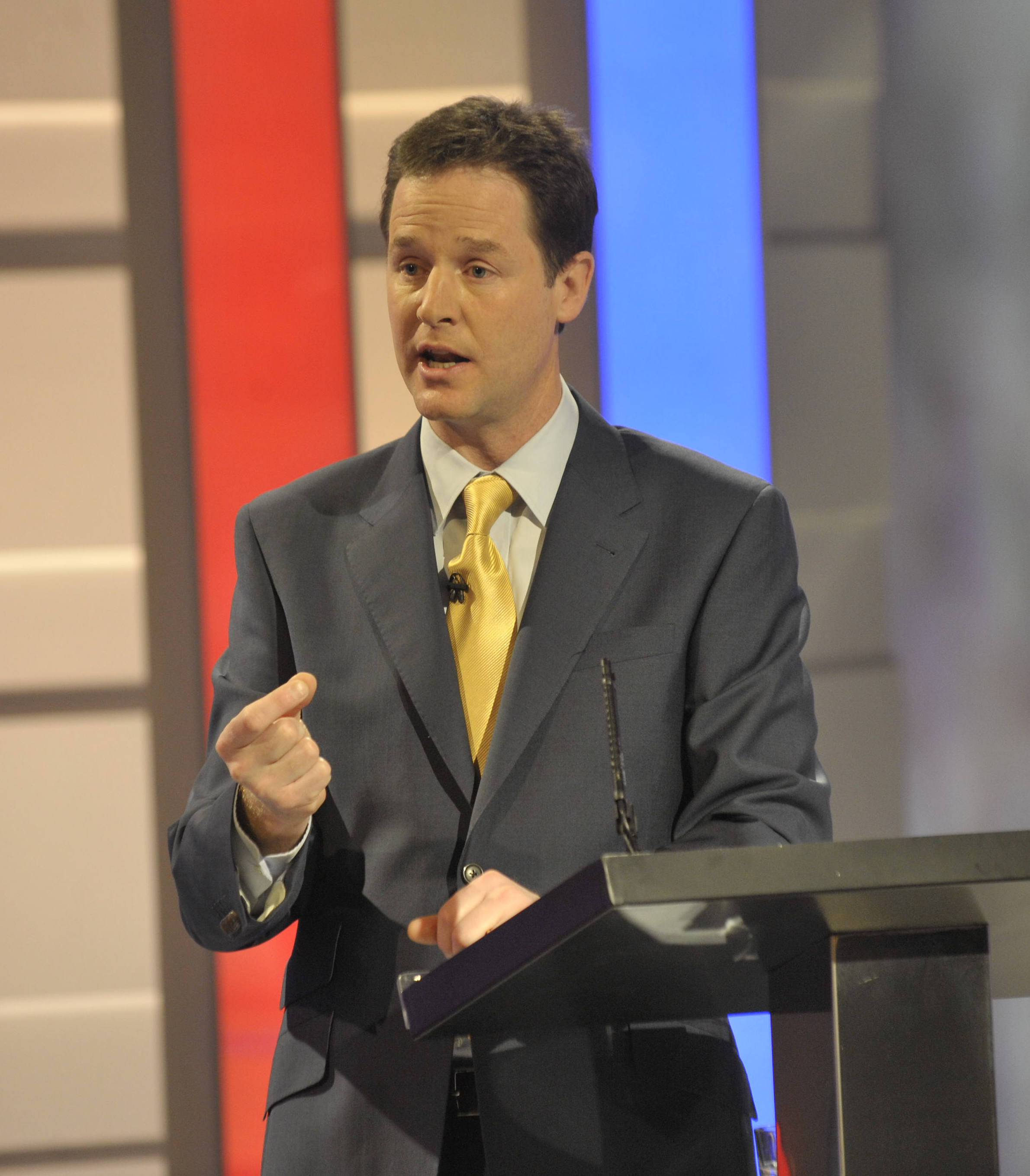 “I agree with Nick”, said Brown – and, as it turned out, so did most
of the people YouGov polled. Brown lived right down to expectations, Cameron lived up to them (but didn’t exceed them). Few would have had any expectations from Clegg: what we political
pundits know to be his clichés will be heard for the first time in many living rooms tonight. Each used tactics we’re familiar with. Brown opened his verbal machine gun, and sought to
mow down the audience (they surrendered early on). David Cameron was fluent, articulate – as anyone who has followed politics had come to expect. But dazzling? No. He was subdued, seemed to
be biting his tongue at times. He didn’t attack Brown, which seemed to be deliberate. Perhaps the audience at home will thank him for it: fans of political combat, like myself, will think it
a shame.
“I agree with Nick”, said Brown – and, as it turned out, so did most
of the people YouGov polled. Brown lived right down to expectations, Cameron lived up to them (but didn’t exceed them). Few would have had any expectations from Clegg: what we political
pundits know to be his clichés will be heard for the first time in many living rooms tonight. Each used tactics we’re familiar with. Brown opened his verbal machine gun, and sought to
mow down the audience (they surrendered early on). David Cameron was fluent, articulate – as anyone who has followed politics had come to expect. But dazzling? No. He was subdued, seemed to
be biting his tongue at times. He didn’t attack Brown, which seemed to be deliberate. Perhaps the audience at home will thank him for it: fans of political combat, like myself, will think it
a shame.
None of them dropped any clangers – nor did anyone have killer one-liners. I’m struggling to recall a single line from the debate. Cameron scored when he thanked the soldier and the nurse for their service: he relied on anecdotes, whereas Brown emptied his statistics on the poor viewer. I can’t deny that Clegg’s answers were stronger than I expected, and those who had never heard of him may well have been impressed. From the offset, it was said that Clegg had most to gain from these debates. So it was to prove.
Clegg gorged on the plague-on-both-your-houses lines, pitching desperately for the anti-politics vote. “All I would appeal for is a bit of honesty in this debate” and “The more they argue, the more they sound like each other.” Etc.
Only a few exchanges jumped out at me. The first was the military. Brown starts, as he always does when talking about the military, with a garbled sentence “Let me say, first of all, my pride and my admiration for the Armed Forces.” Brown can never speak in grammatically correct sentences when talking about the military (sending “best wishes” to the deceased, etc) because he does not understand the military. “Every Urgent Operational Requirement that our Armed Forces have asked us for has been met,” drones Brown. Then says how terrorist plots start “in that region” (that’s his way of saying “Pakistan”). Cameron’s response, when it came, was far more subdued. He should have said it was a scandal that soldiers died in Belfast-era Range Rovers etc – there are enough examples to go through. Instead, he mentioned a policy area. Cameron was evidently told not to go after Brown in this way, not to be too Flashman (to use Alan Johnson’s analogy). A shame, in my view. I could have seen far more raw anger from Cameron, because he does feel it.
Cameron was at his most convincing when speaking directly to the nurse. “Can I thank you for your incredible service to the NHS. What it did for my family and my son, I will never forget. The dedication, the love. Thank you for all that you have done.” This left statistics-spouting Brown in the shade. And on the economy, he beat Brown by dismissing his (ridiculous) claim that £6bn of cuts posed some mortal danger to the economy. All he’s doing is proposing is to cut 1 percent of government spending: what family has not had to cut their budget by at least as much? The answer, he said, is to cut the waste and cut the tax.
I was once given a George W. Bush doll which, if you pressed a button on his lapel, would recite one of his soundbites. At times, this is what this debate felt like. At every given topic, the leaders recited their given answers. People have heard Brown’s repertoire, they’ve heard Cameron’s. But not Clegg’s. He enjoyed the novelty factor. I hope he enjoys it: tonight may very well be the high point of his political career.








Comments